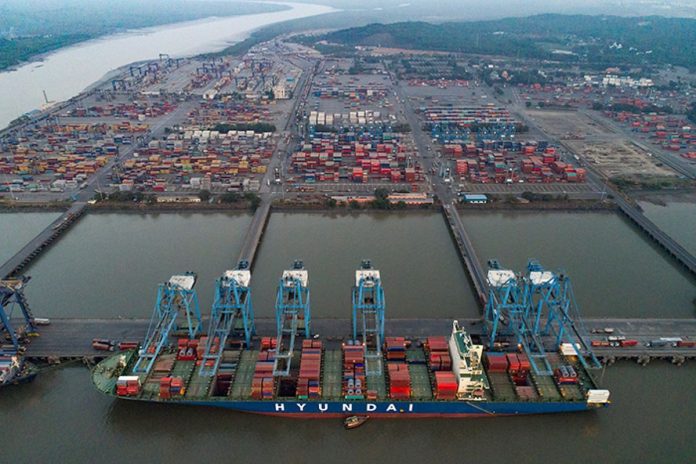The proposed Rs 75,000 crore container port project at Vadhavan in Maharashtra is a nationally important project, Jawaharlal Nehru Port Authority (JNPA) chairperson Sanjay Sethi said last week.
“The development of the port is of national interest and will go a long way in changing the lives of people in the region,” Sethi said in a press conference here which was attended by Palghar collector Govind Bodke and Superintendent of Police Balasaheb Patil.
There has been widespread opposition to the project by local communities, who fear displacement and loss of customary livelihoods as experienced by indigenous communities in Raigad’s Uran taluka (where JNPA operates India’s largest cargo port at Nhava Sheva).
The Union Cabinet in February 2020 had approved setting up Vadhavan Port under the Sagarmala Programme.
Located in the eco-sensitive Dahanu taluka in Maharashtra’s Palghar district, the Vadhavan Port has a natural draft of around 20 metre close to the shore, making it ideal to handle larger container vessels of 16,000-25,000 Twenty-foot Equivalent Unit (TEUs) capacity, giving the advantages of economies of scale and reducing logistics costs.
Following a comprehensive four-year examination by experts to ensure compliance with all environmental laws, the port project received approval from the Dahanu Taluka Environment Protection Authority (DTEPA) on 31 July this year.
The permission removed a big obstacle in the development of the port, and the port authority can now apply to the Expert Appraisal Committee attached to the Environment Ministry, seeking environmental and coastal regulation zone clearances for the project.
“Vadhavan will be a major port under the Indian Ports Act. It is estimated to cost Rs 76,220 core. The investment proposal for implementation is under the consideration of the Union government,” he added.
Sethi reassured that the construction of the port will not adversely impact the Tarapur Atomic Power Station, located approximately 12 kilometers north. He mentioned that the port development has been given a no-objection certificate by the Ministry of Atomic Energy.
“The Central Water and Energy Research Centre, Pune has carried out a mathematical quantitative study of the impact of the proposed port development on the sedimentation process at the Tarapur Nuclear Power Station. Estimates of potential oil spills from the developing Vadhavan Port and possible spillage towards Tarapur Nuclear Power Station have been assessed by INCOIS,” a note issued on the occasion said.
Addressing concerns about displacement, Sethi emphasized that the port construction would involve acquiring limited land with fair compensation, and fishermen would be adequately compensated.
“Fishermen will be compensated. There is no danger to Shankodhar, a place of worship, as it is far away from the proposed construction site. Extensive studies and surveys have been conducted to collect information and to ensure fishermen are not let down. There is no proposal to set up an oil refinery as part of the port project. No one should believe such propaganda,” the official added.
Sethi and Bodke asserted that the port would generate substantial employment opportunities, including during the construction phase, with at least 50,000 workers needed for various tasks such as the construction of a dedicated 33.4-kilometer road and a 12-kilometer rail line from the national highway to the proposed port.


